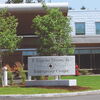Processing Your Payment
Please do not leave this page until complete. This can take a few moments.
- News
-
Editions
-
- Lists
-
Viewpoints
-
Our Events
-
Event Info
- Women's Leadership Forum 2025
- On the Road with Mainebiz in Bethel
- Health Care Forum 2025
- On The Road with Mainebiz in Greenville
- On The Road with Mainebiz in Waterville
- Small Business Forum 2025
- Outstanding Women in Business Reception 2025
- On The Road with Mainebiz in Bath
- 60 Ideas in 60 Minutes Portland 2025
- 40 Under 40 Awards Reception 2025
- On The Road with Mainebiz in Lewiston / Auburn
- 60 Ideas in 60 Minutes Bangor 2025
Award Honorees
- 2025 Business Leaders of the Year
- 2024 Women to Watch Honorees
- 2024 Business Leaders of the Year
- 2023 NextUp: 40 Under 40 Honorees
- 2023 Women to Watch Honorees
- 2023 Business Leaders of the Year
- 2022 NextUp: 40 Under 40 Honorees
- 2022 Women to Watch Honorees
- 2022 Business Leaders of the Year
-
-
Calendar
-
Biz Marketplace
- News
- Editions
- Lists
- Viewpoints
-
Our Events
Event Info
- View all Events
- Women's Leadership Forum 2025
- On the Road with Mainebiz in Bethel
- Health Care Forum 2025
- On The Road with Mainebiz in Greenville
- On The Road with Mainebiz in Waterville
- + More
Award Honorees
- 2025 Business Leaders of the Year
- 2024 Women to Watch Honorees
- 2024 Business Leaders of the Year
- 2023 NextUp: 40 Under 40 Honorees
- 2023 Women to Watch Honorees
- 2023 Business Leaders of the Year
- + More
- 2022 NextUp: 40 Under 40 Honorees
- 2022 Women to Watch Honorees
- 2022 Business Leaders of the Year
- Nomination Forms
- Calendar
- Biz Marketplace
Portland meadery making its mark
 Photo/Mindy Woerter
Ben Alexander, co-owner of Maine Mead Works, talks about the company's line of honey-derived mead
Photo/Mindy Woerter
Ben Alexander, co-owner of Maine Mead Works, talks about the company's line of honey-derived mead
 Photo/Mindy Woerter
Ben Alexander, co-owner of Maine Mead Works, explains how the company's continuous fermentation system works
Photo/Mindy Woerter
Ben Alexander, co-owner of Maine Mead Works, explains how the company's continuous fermentation system works
 Photo/Mindy Woerter
Bottles of Maine Mead Works' HoneyMaker mead are ready to be labeled
Photo/Mindy Woerter
Bottles of Maine Mead Works' HoneyMaker mead are ready to be labeled
Unlike beer and wine, mead doesn't really have a well-defined market. The lack of a market for fermented honey elixirs can either be a challenge or an opportunity. Maine Mead Works is working hard to make it the latter. Only a year and a half into its move to a new facility on Washington Avenue, the company has expanded its distribution area from a few local markets to six states. And the owner says sales are up 60% over last year.
Ben Alexander, who co-owns the company with his wife, Carly Cope, says he began distributing locally to Whole Foods and Rosemont Market. In January 2011, the company expanded distribution throughout the Maine and that summer began selling to outlets in Massachusetts, Rhode Island and Vermont. Just last week, the company began distributing in eastern Connecticut and New Hampshire.
"We're slowly building our brand and getting placement," Alexander says.
According to Christopher Philbrook, who handles media relations, the meadery from January to March sold 806 cases of mead -- 373 in state and 433 out of state. Over the same period last year, the company sold only 402 cases in state. In-state figures include wholesale and retail, while out-of-state figures only include wholesale, he says.
Mead is an alcoholic drink derived from honey. Whereas beer and wine get their sugars from barley and grapes, respectively, mead relies on the sweetness of honey for fermentation. And the result can be sweet, or dry, depending on the recipe of mead-maker Nick Higgins.
Maine Mead Works's HoneyMaker Mead uses a unique fermentation process that employs two 10-foot-tall steel columns that can churn out 85 gallons of light, wine-like mead. Flavors include dry, dry hopped, semi-sweet, blueberry, lavender, apple, cranberry and strawberry.
Alexander says he is currently making his case on a patent for the continuous fermentation process that he built with the help of South African mead-maker Dr. Garth Cambray. That process allows for a mixture of honey and water to be continuously fed into the steel cylinders, where it interacts with yeast to produce a steady stream of mead.
The company, which employs seven people, relies on a 13-farm network to locally source its ingredients, getting its honey from Aroostook County, cider from Turner, elderberries from Danville, lavender from the midcoast and maple syrup from Windham. It also teams up with Smiling Hill Farms, which makes cheeses for special "Mead the Maker" events.
Recently, Higgins was busy filtering a batch of blueberry mead, which will be siphoned into 1,500 bottles and labeled by hand in time for the summer season. But he paused to offer up a sample of his latest experiment -- carbonated mead that will be kegged and served on draft at select locations, including the McKay's in Bar Harbor and Novares Res Bier Café in Portland.
"There seems to be a demand for having it sparking," says Alexander, noting that local mixologists are using mead in cocktails and area chefs use it for cooking.
After starting in 2007 in a small warehouse space on Anderson Street, the company moved in October 2010 to an 8,000-square-foot facility located in the former J.J. Nissen building next to Coffee By Design, which provides coffee beans for the Maple Coffee Mead. The new meadery features a brightly colored tasting room with a leather couch, wicker chair and, of course, HoneyMaker Mead swag.
Alexander says the facility was included last year on the Portland Foodie tour, allowing more people to learn about its products. He says being a mead maker is as much about education as it is production. "Making it easier for people to come in and try our product is important," he says. "You just have to get over the bias that [mead] is made from honey, not grapes," he says.
In a small mead community nationwide, HoneyMaker Mead seems to be making its mark. The company's Dry Mead earned a gold medal at the 2012 Mazer Cup International while its Elderberry Mead and Apple Cyser each earned silver medals.
Wine enthusiasts are also taking notice: The Apple Cyser won a silver medal at the 2012 Dallas Morning News/TexSom Wine Competition; the Blueberry Reserve won bronze at the 2012 International Eastern Wine Competition; and the Apple Cyser won silver at the 2012 Finger Lakes International Wine Competition, while the Strawberry Mead and Spiced Mead earned bronze.
The tasting room is currently open Monday through Saturday from 11 a.m. to 5 p.m., with tours at 3 p.m. Starting in May, the tasting room will be open Monday through Saturday 11 a.m. to 6 p.m. and Sunday from 12-4 p.m., with tours at 11:30 a.m. and 3 p.m., Monday through Saturday.










Comments